#who my parents knew from the asylum center for immigrants. back before I was born
Text
Incredibly jealous of people who can fish
#whenever I see someone fishing I’m reminded of my these Vietnamese guy#who my parents knew from the asylum center for immigrants. back before I was born#he used to wake up early in the morning and fish for them#I have so much love for him yet I’ve never even met him#anyways I just love immigrants. and I love SEA ppl. they’re my peopledem
2 notes
·
View notes
Text
Nekessa - September 24th, 2019
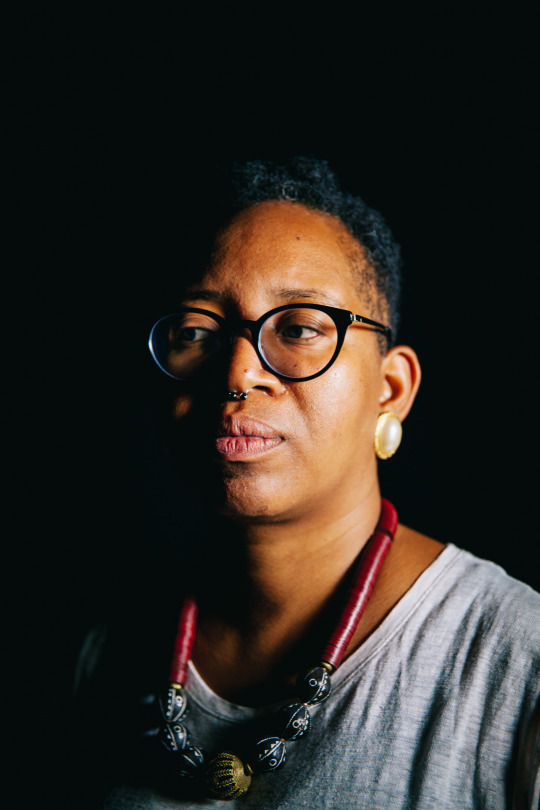
Nekessa: I think one of the first conversations we ever had, I don't know if you remember, was around the American definition of Queerness and the ways people present. Because there are parts of it I actually don't understand in terms of like defining what Queerness is. How much of nonconforming is Queerness or is it like being suppressive or all that sort of thing? But yeah, I remember this conversation we had.
Nancy: Well, thank you for sitting with me and sharing your story. So, my first question is just establishing who am I sitting across from? Tell me your name, where you're from, and what brought you to the West?
Nekessa: I'm Nekessa Opti. I moved to Minnesota to the U.S., early 2000 and I came here for college. I had family that had also moved here in the 80s for college, but I basically came to the U.S. for higher ED, and then have stayed since.
Nancy: And, did you just say what caused or what drove your family away?
Nekessa: No, nothing drove my family away. So, I grew up in Kenya in a city by Lake Victoria called Kisumu. I was born in Nairobi, which is the capital of Kenya. And grew up in a very educated, elite family that always wanted my siblings, I and cousins to have. You know, formal education. And so I applied to a lot of colleges in the U.S. and in the U.K. and I got admitted to a couple of colleges in the U.S. and that's how I ended up here. So, I came alone and my siblings are also all over the world. One of them [who] is here also came here for college, and then the others went to college in other parts of the world.
Nancy: And have you returned?
Nekessa: Back home? No, I have not actually. The last time I was home was twice: one for my mother's funeral, and then one time after that, and of course it became really difficult for me to go back after my mom had passed on. She was an only parent to my siblings and I. And at the time when she passed away, all of us were college-aged and moving around to go to college. So, home really changed for me and what home was because she wasn't there anymore. And so I fell into depression around that time and lost my student status and have been undocumented since. And I have thought about going back home, but I don't know. Yeah.
Nancy: Well, I just want to hold that, what you just shared, acknowledging that loss drove you away from home. And that's like really heavy and I'm just taking a pause for that.
Nekessa: Thank you.
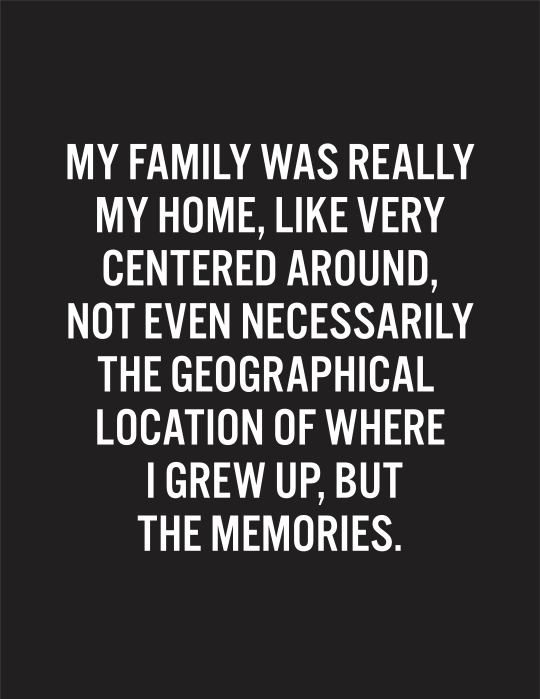
Nancy: So prior to your mom passing, how did you define home?
Nekessa: Yeah. Home was always where my family was, where my siblings were. It was always. So, I grew up right outside Lake Victoria. Like about half an hour's drive from the literal crossing of the invisible equatorial line. So, you know, I share that to say it was our little paradise, you know, perfect weather. 80 to 100 degrees. I know that's not perfect for a lot of people, but I love the heat. So, 80 to 100 degree weather; right by the lake, trees. And I always, even when I was home sick when I was in college, I would always remember that that was home. My mom and my siblings would write me letters or call and talk to me about what things were going on back home. So my family was really my home, like very centered around, not even necessarily the geographical location of where I grew up, but the memories. And we were a very tight knit family. We continue to be separated by borders now but my best friends are my siblings. You know, my best friend was my mom. We did a lot together, like a lot. We traveled as a pack.
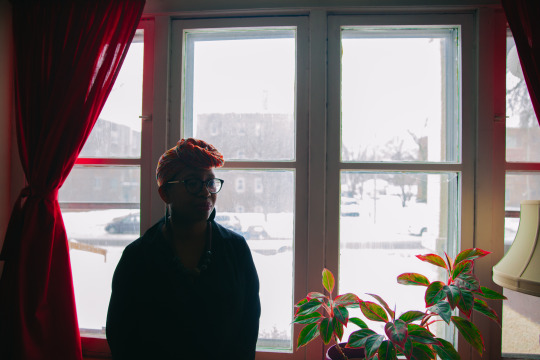
Nancy: You mentioned — I love that you mentioned borders and how that can change our definitions of home. Describe what a world without borders would be like for a person like you.
Nekessa: Wow. That's a profound question. And I actually think about this a lot. I always say that my family has been disrupted by borders for generations. My one side of the family is second-generation Indian from the Indian subcontinent and were brought to East Africa as indentured servants. And so they worked across the railway line in East Africa when it wasn’t at all even defined as we know, it was called the East African Protectorate.
And so as soon as the nation-states were developed, the families became separated because of having to move from one country and the other. In the late 70s, some of the political upheaval that was happening in Uganda, for example, resulted in my Indian grandfather being imprisoned because Idi Amin kicked out all the Indians out of Uganda. And so a lot of my Indian side of the family fled and applied for asylum. Many of them live in Canada now and the U.K. because those are the countries that are giving asylum to East African Indians. And then another subset of the family moved to Kenya because it was safer.
So my family on that side of the family has always been interrupted by borders. On my other side of the family, similarly, they are also historically from the Kenya-Uganda border, and also separated by that border. Again, once those borders were built and other things that come up with the nation-state is loss of land. People have to move farther away from wherever is their ancestral home. It's interesting then that my siblings and I also ended up crossing borders and moving to the places that we have ended up settling in. So, to your question about what does living across borders mean — for me, it's a very complex question, and I think the number one thing is freedom to move.
And freedom to be with family as you define it. Also recognizing that people have a right to live without oppressing others, right? To move as freely as they want to. If I want to live on one side of the Kenya-Uganda border, I should have the right to live and work there. And we know that the complex parts is then what happens to indigenous peoples? How we respect the lands that we're moving into? How we're living in community with people. How are we building new community while respecting the legacy of folks who've come before us? Not in an artificial way, but like really thinking about what our responsibilities to the earth are, collectively? I think about that stuff a lot because for a long time, even as a child, I always felt like I didn't have an identity because I existed in all these different ways of being. And then I come to the [United] States and it's also turned upside-down because now I have a new identity that I didn't have before as a black immigrant in a white country, white majority country, rediscovering myself.
And so I think a lot of this has to be done, this border-identity. Like, when people ask me where I'm from, I never say I'm Kenyan. I always say I'm from Kenya, or I grew up in Kenya, or something like that because I don't even know what it means to have a Kenyan identity. I know cultural aspects because I grew up there. I went to school there, and there's cultural markers that you have. You know, you watch TV so you develop certain things. There's fashion, there's all that stuff. But if you ask me to the core, what does it mean to be Kenyan? I don't know what that answer is. Just as if someone asks me what does it mean to be American? I don't know what that answer is either, but I know who I am and I know how I move around the world.
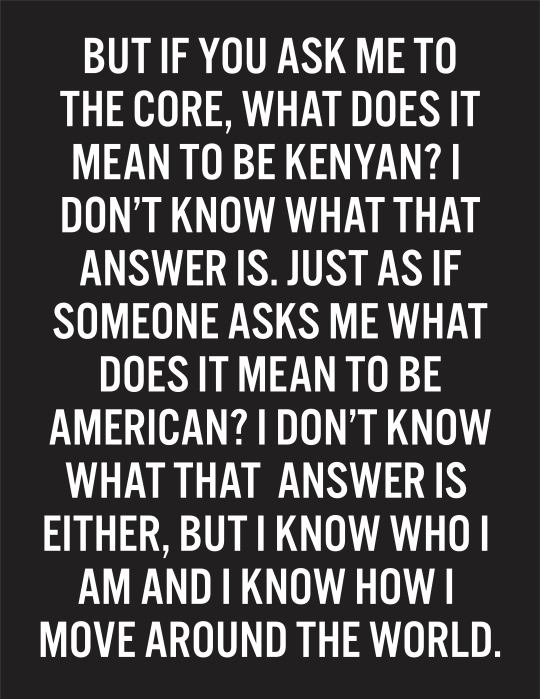
Nancy: Well, you're doing my work for me! You’re leading me to my next question, which is, how do you identify? Describe all the things that would describe you.
Nekessa: Whew. So, I think identity, of course, it's fluid, right? And it's also — what is the word? Within context, right? It's like locational. But in brief, I would say for purposes of this discussion, I am a Black immigrant, Queer Black woman. And I think those are my top identities and then everything else just depends. I take very seriously my relationship with my siblings. I'm a big sister to them. I'm also a big sister to a lot of like, Queer African kids here in the [Twin] Cities.
I'm almost 40. I'm a young auntie. I think I've been an auntie since I was in my late 20s. So yeah, I think those are the ways I would define myself. In how I exist, I'm a writer. I don't really consider myself an organizer, but I’ve been teasing around what that means. What does it mean to be an organizer? A lot of the work that I did in the past was sharing off information around media and journalism. And now it's around sharing information or rather telling stories and uplifting stories of immigrants.
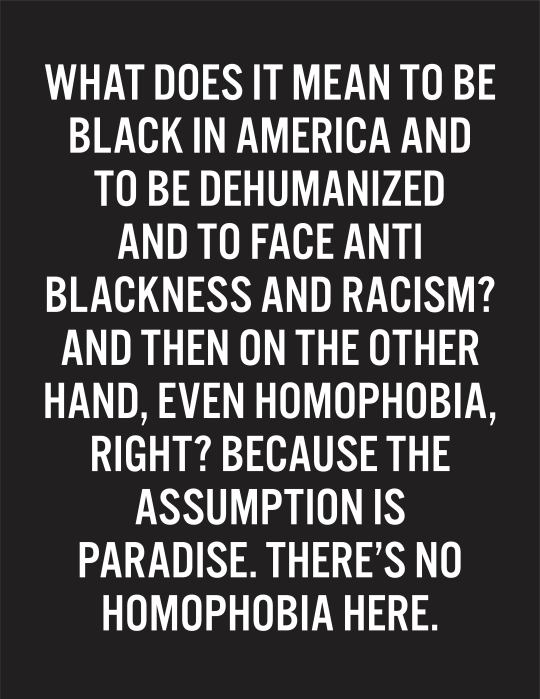
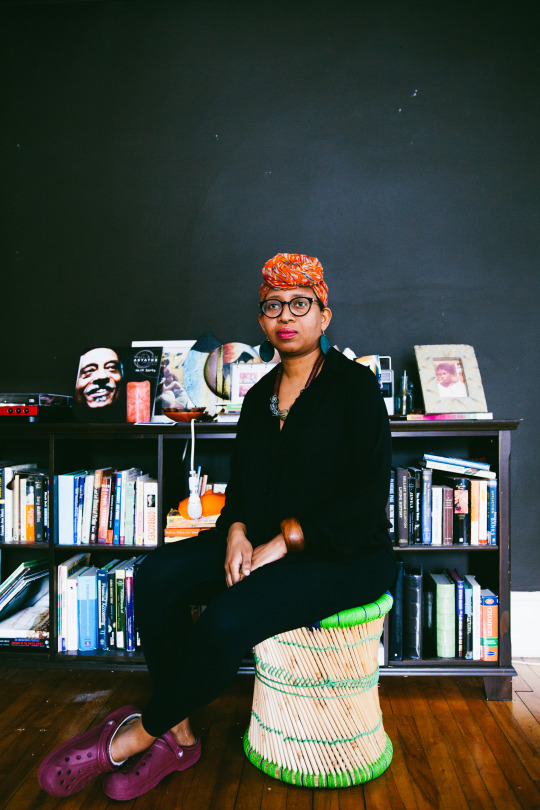
Nancy: So, you spoke about what brought you and your family outside of Kenya, outside of home, or how you would consider home. What has kept you here [in the West]?
Nekessa: The thing that kept me here was simply me going, putting one foot in front of the other because of my depression. This was what I knew. I had friends from college, I had a community of people, and then the longer I stayed here, the more work I did. More friendships I created. I had an even larger family of people. Being very connected to people has kept me here and it's also part of my survival. Like those relationships are what have sustained me and kept me. And I have toyed and teased with the idea of going back home. I think one of the questions that I grappled with is, what does it mean to be Black in America and to be dehumanized and to face anti blackness and racism? And then on the other hand, even homophobia, right? Because the assumption is paradise. There's no homophobia here. And then on the flip side is going back home, being in community, you know, being by the Lake, soaking up the sun, eating mangoes. There’s all that. And then there's also the reality that it is dangerous for Queer people in a very physical way.
Not to deny that Queer activists back home are fighting like really amazing, inspiring battles and have created safe spaces for where they can exist and to be Queer. And that reality terrifies me, that I can never be able to be fully out. Which, in some weird ways, also impacts me being out here. Because in the event that I'm deported, I don't want this to be the story that, ‘Oh, she's gay. Right?’So it's like a balance of either way, I'm not living my complete true self, because of the fear. And it’s like sometimes I also think it's a false sense of safety, right? The Minnesota State government could not ban conversion therapy. The bill did not pass, so it is still legal. Because the Republicans could not. It's actually a fascinating story and fascinating in the sense that's a reality here in Minnesota, right?
There are conversion therapy camps and we have them back home too. They look different. Right? But they exist. So there's ways in which you're reminded that you don't exist or you don't deserve to exist.
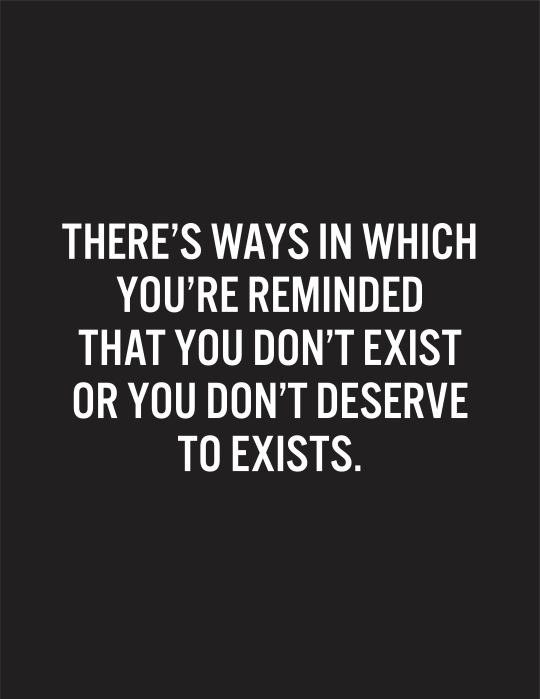
Nancy: Yeah. So I really like how you are identifying and naming [that] borders can change who you are the moment you cross them. So, just purely by definition, our identities are fluid. But I also really love the comparison, like this false sense of security in the West, you know, keeping you away from harm back home where I feel like [we] are more exposed or maybe more vulnerable to these systems, or these things that dehumanize you or don't allow you to be your full self. You know, can you just talk a little bit about the factors or the systems or the elements that drive people away from their homes? Like, what makes [Queer/trans folks] not feel completely safe to be their full selves? That's a very, very large question…
Nekessa: As you were talking, one of the things I had wanted to mention earlier that I didn't was in terms of thinking of myself as a Black woman in America and this false sense of safety. So, there's ways in which we think American women are more empowered and have access to a lot of all this stuff. And in some ways, parts of that is true, right? And in some ways, it's also not true. I remember like one of the most terrifying moments was when Sandra Bland was killed by cops. Even though I know it, I know that Black women are victims of police brutality and do die at the hands of police, this showed something in a very real way. Sandra Bland was me and she was also many Black women that I know who feel, if you ask one too many questions, that you're invading their space or their privacy, and will push back, either stop you or ask you not to. We get punished for being outspoken. We get punished for being the angry Black woman. So, of course there is the fatal results that ends in you having loss of life. And then there are other things that mean you not having jobs or you're not getting a promotion or you not having friends. All those sorts of things. That your being as a Black woman is scrutinized and permanently being clawed on. And so when I think about my mother raising us, the sort of stories that she’d tell us, you know, where people would question her and ask her where her husband was, or if she went to a PTA meeting, they would not take her seriously because [they’d ask] where's the man?
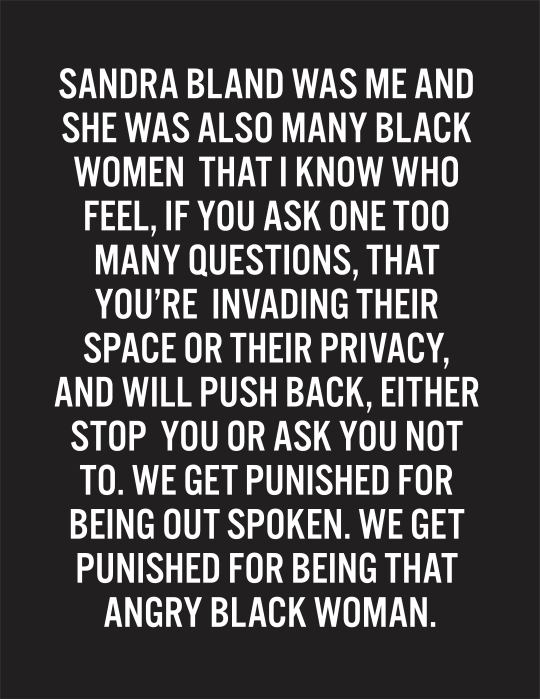
Nekessa: And so like I grew up knowing all of this, but I also grew up in a household where all of us siblings were treated the same. I don't want to say equally because there's also patriarchy that will always exist within and outside of the home. And the way kids embodied that is also a reflection of society.
So anyway, I say all this to say that I think there's this, again, same thing with the falseness of what America promises and that it does not deliver, even for us when immigrants are the idea. So I'll tell you, there's a guy I know who heard one of Obama's speeches when he was in, well, I wont say what country, but a West African country, and he heard one of Obama's speeches.
Obama was saying ‘this is a nation of immigrants’. And basically the American exceptionalism speech that he was very good at giving. And so this guy hears this, and him and a group of friends, of gay West African men, decided they're going to make it to America before Obama gets out of office because they believed that they could live freely as gay men in the U.S. You know, they fly into Central America and then they trek and they turn themselves in at the [U.S.] border. And every single one of them is arrested and put in detention for minimum 2 years, but some of them over 2 years. Some of them are still in there and some of them are out. So you think about this, right?
I have actually [heard] a lot of that kind of story of Queer Black immigrants who have come to the U.S. to flee persecution for being gay in their home country and to arrive the U.S. and be treated as a man, Black man. So, you can imagine the reality for this guy. And there's another one who is even younger who says that he never imagined that this is what America would be. He thought he would be coming to a place where he would be free.
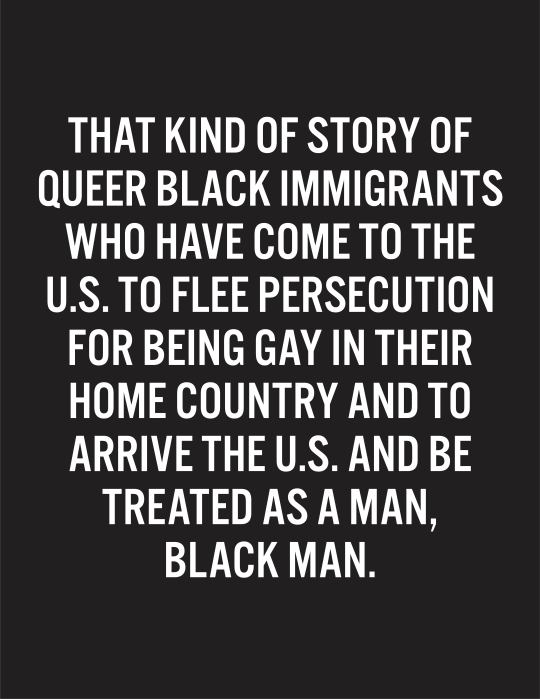
Nekessa: He had more freedom as a persecuted gay man in his home country than he did in the U.S. because in the U.S, he was locked up: could not move, could not make phone calls, did not know anyone, did not know who to call, where to get help. Several of these guys have tried to file their cases for themselves, only for the judges to throw them out for ICE to “lose their” papers, in quote. And so like very much a reminder of this country is actually not free, right? The freedoms that we say that this country is, is not a reality. And the reality for Trans immigrants as well is also that they put them in isolation. So it's an another from of layered imprisonment and incarceration because they're completely cut off from all human contacts for their “protection", In quotes, again, that ICE says. And so to your question of what drives people away from home? A lot of people are not making the choice to come to a country so that they can face, say, anti-blackness or racism. They really are moving because they believe that they're moving to a better life. They believe that this is offering them and their family something different that they can dream, that they can go to school, that they can have children, they can have families, or not have families.
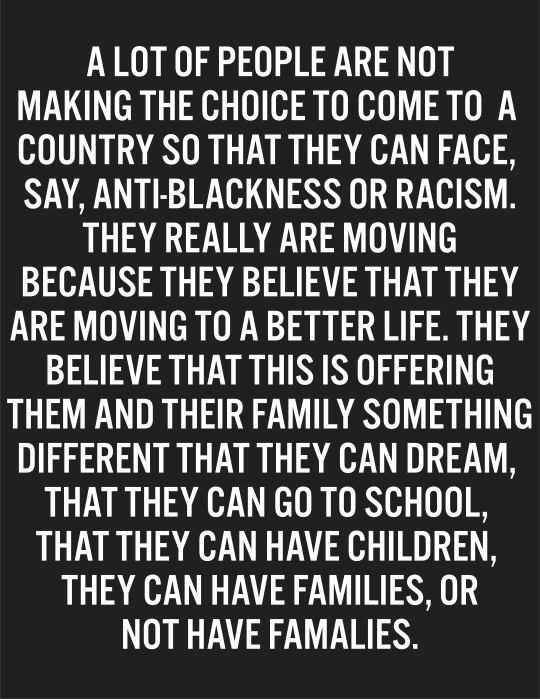

Nekessa: All those promises. And then there are some people who literally are making a choice. There's a woman who said to me that a couple of her friends were killed because they were gay. So she ran, she hid from city to city in her country. And she says to me that she comes to the U.S. and she's “saved”, in quotes, by one of these international gay human rights organization that's run by white people. She says she has never felt that dehumanized. I was like, ‘yo, you just told me you ran for your life.’ She said, ‘yes, because they saw me. They saw my humanity. That's why they wanted to kill me, and they were chasing me.’ And there's nothing more invisiblizing than sitting in front of a room of people and they don't see you, or they don't hear you or your voice doesn't matter to them. Right. And this is the experience that she's had as a Queer African woman who fled, applied for asylum, actually has physical scars because of the brutality she faced as a Queer woman — as specifically as a lesbian. And in America, she doesn't feel seen at all and humanity is completely erased.
Those are the realities. All these people, myself included, were not making choices that is better than another. This is basically what our card has dealt us, and here we are.
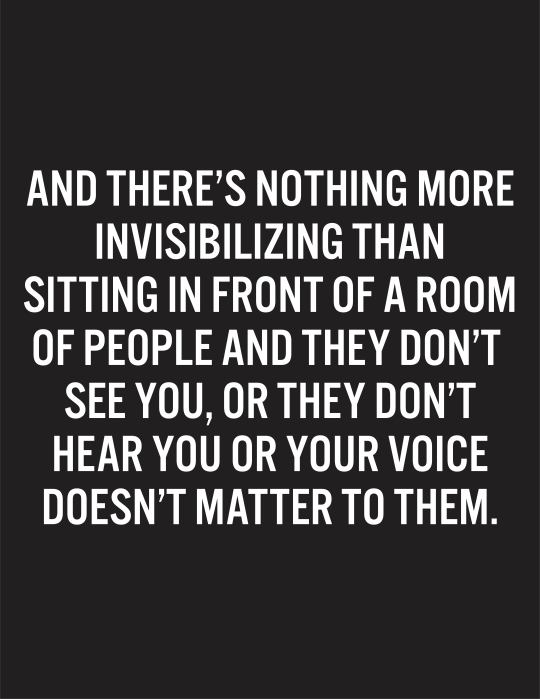
Nancy: Thank you for that. So, I want to further clarify and go a little further than that. US -involved conflict in these countries that people are fleeing from, how ironic it is people are fleeing from a country that’s all they've known and they're not leaving because this is their “plan” as in, ordained for them. So, they come here, but they're facing more systems and more systemic oppression. The feeling of being displaced, the feeling of feeling stateless. It's being perpetuated by this country who promotes this false concept of freedom and democracy around the world…
Nekessa: What a joke. American democracy? I do think, I mean, this is like a college dissertation and several years worth of work that so many people have articulated much better than we can in this short interview. I think for Queer Black immigrants, specifically Africans, I think this shows up in three ways: one is, the U.S. conflict in really physical terms — whether it's war and their involvement in the different countries. So that's one example. Then the other one is anti-LGBT laws around the continent that have specifically been introduced by American white evangelicals. So you see the countries that have the worst experiences for Queer folks are the countries where this legislation had been introduced.
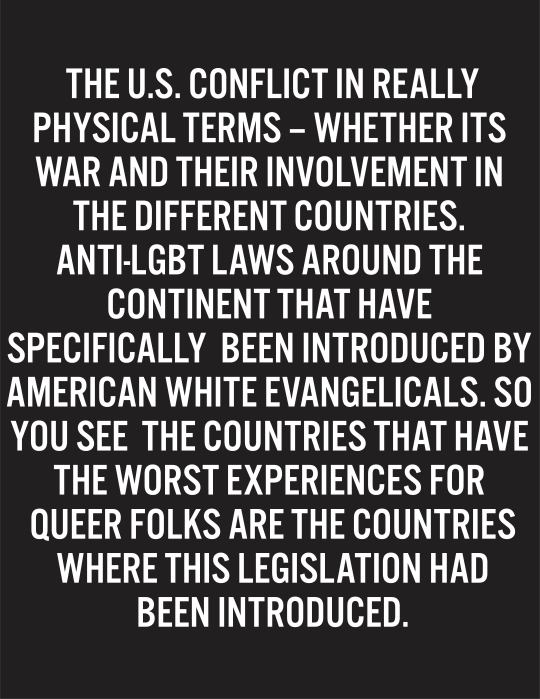
Nekessa: And this is also not to say that we are not homophobic as Africans, because that is a thing that exists. But, the institutionalizing of anti-Queerness is a very Western concept, the putting it into law. And saying, for example, if you're in a same-sex relationship, you will be sentenced to death. Your family with the awareness of it will be sentenced to death. All these are things that never existed. In fact, many of them didn't exist until the last 20 years. And so that's very direct involvement.
Again to say, I mentioned this, other Queer activists on the continent are really doing phenomenal work because every single one of these countries has people protesting and fighting that legislation, suing their governments going all the way to the Supreme courts. Also protesting in the workplace, in the home, and other ways of showing up challenging these laws.
Then the third thing is the climate change crisis is pushing people away from homes. So even if you're a Queer migrant who's come to the [United] States as a refugee because your home country doesn't have water, or land has been taken with all these international conglomerates. The multinational food production that's pushing indigenous people away from their land. And creating, again, more conflicts in those areas. Oil, our cell phones, all that stuff. Queer people are part of those groups of people that are being displaced and marginalized. So the initial move away from home, may not be because they were Queer.

Nekessa: Like for me, that's not why I moved. I moved for college, and I'm also Queer. Like, it's both. So, yeah. I think you're right about the hypocrisy — the idea that America is not only about freedom here, but also saving people around the world — is ridiculous because a lot of the conflicts -
Nancy: - bring those conditions for people to leave.
Nekessa: Right.
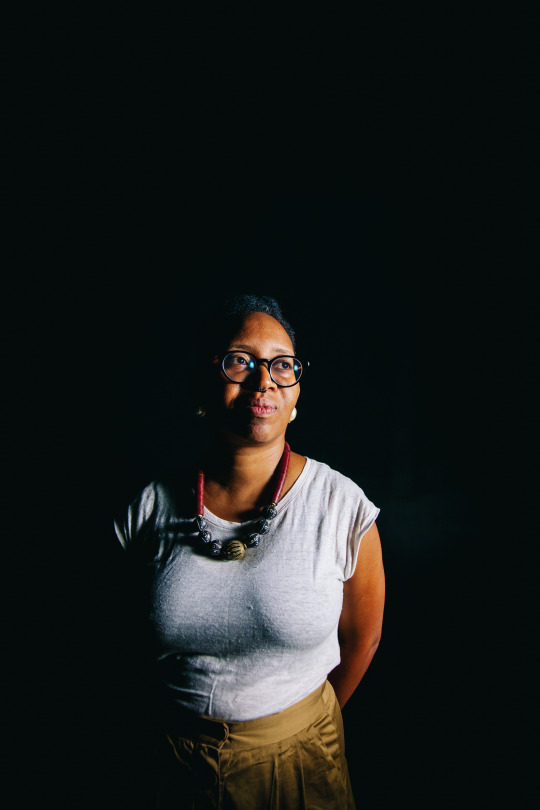
Nancy: Make people not feel safe. Well, I'm going to transition into something less dreary now. We're going to start talking about joy. What gives you joy?
Nekessa: What gives me joy? Mangoes. I, oh my God, I love mangoes. Can I tell you? So, we grew up with mango trees. Obviously, no mango trees in Minnesota. But, one of the things I do is chase mangoes, because they're seasonal. And this is probably not good for my carbon footprint, but I figured out all the ethnic grocery stores, like the Asian, the Mexican, African ones, they always have mangoes.
And they're always from different countries. Depending on what season it is in the country. Sometimes you get mangoes from Guatemala because they’re in season, then you then suddenly see only mangoes from Mexico because they're in season, or only mangoes from Ecuador. So, I'm almost always eating a mango.
Nancy: Do you — Okay. Which mango is your favorite? Like, from what countries?
Nekessa: Oh, I have to say from Kenya. I grew up like eating one type of mango, but my auntie used to mail us this huge juicy mangoes from Mombasa and Malindi. There's actually a market called Mary County where they only sell mangoes. When we would visit, we just sit there…so anyway, that's a long response. I love mangoes. I really love being around people. Stories, like talking and just goofing around. And being in community with people gives me a lot of joy.
I love music. I always say music saves me. My work is very emotionally exhausting and draining. And the only thing that takes me away from it, emotionally, is music. Like, I will walk to a small bar with a local band and I just get joy from that. I listen to music on Spotify or YouTube. I just love exploring music from around the world. What else gives me joy? Traveling. It never used to, but I enjoy traveling also related to meeting people. Apart from mangoes, I actually don't really like eating.
I'm not a foodie. I like the community that forms around food with people. How people will come to a party and have all sorts of food and talk about the food. I have stupid arguments with West Africans about our rice being better than their rice. And it’s cause they only fight around their jollof — which is the best jollof? And I'm like, ‘wait, have you eaten East African rice from the coast?’ No? So, that's sort of like community building. Like, I enjoy what food brings out in people. And I'm pretty sure there are other things that bring me joy but I can't remember right now.
Nancy: I was just going to ask, how do you define community?
Nekessa: Community? Actually, that's a great question. For me, it's friends and acquaintances. And I make the distinctions because oftentimes when you're in community spaces, you don't really know most of these people well. Like, you see each other around, so you're familiar with each other, but you've never really like worked together, lived together, but you have some form of familiarity and you acknowledge each other. That, for me, is part of it. Majority of my definition of what is community involves majority Black people. It does include some other non-white people, people of color. And I actually can't explain it. Sometimes I'm like, ‘I don't need to explain it.’
And I'm also very careful about saying not all Black people are my community. Right? Especially as a Queer person. I have to know which places I feel safe to be my full self. To be Queer and to just exist in that space. And I will say this, that even some of the places that I fear that might be homophobic, I still will find community in them because they're Black.
There's things that I get out of it, and relationships I have with people that are complicated. So, even if they don't see my full humanity in that sense, I still have some level of community. It's a difficult thing to acknowledge, but it's also real that some of the aunties that I'm in relationship with — and by aunties, I don't say this in terms of blood-relative — don't understand my Queerness.
They don't get it, and I'm not going to explain it to them, but they love me. They will cook for me when I'm sick, or they'll even call me to pray for me. I don't believe in the prayer, but it's not harming me. So, it's like those people are my community too, because we care for each other and we hold each other in those ways.
Nancy: Why do you think people need community?
Nekessa: To survive. We need community to survive. This is such a violent world, you know, I think it's literal survival, and joy is survival.
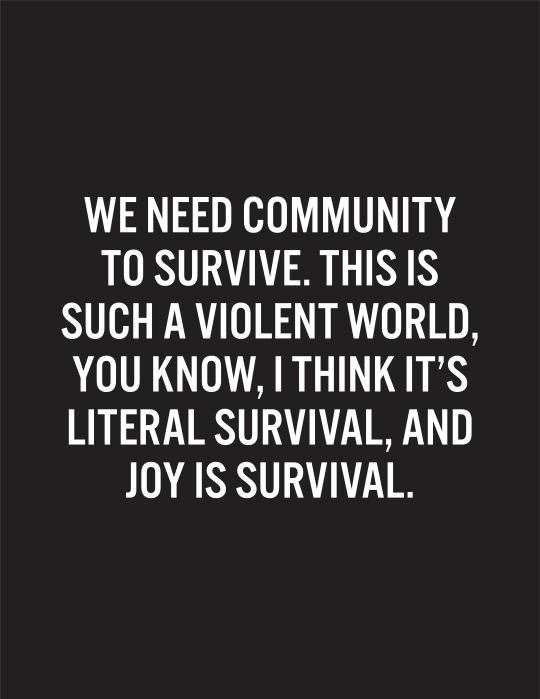
Nancy: Okay, so now finally getting to the actual question. How do you define Queer?
Nekessa: How do I define Queerness? I think for me, Queerness is also beyond the definition of sexuality or gender. I'll say that and, in terms of sexuality, I think I'm pansexual. But, I mostly date men and women, but, I'm generally very pansexual. So, that's a definition that I want to make clear because I also think that there is invisibility of us existing in that way. Then on top of that, my Queerness is also political. So, I barely say that I'm gay, and I barely say that I'm a lesbian even when I could identify as that. Because Queerness is a very political identity. It's very leftist. It's very rooted in liberation beyond me. Like, yes, I deserve and want to be with whoever I want to be. So do people in my community, and that looks like different things. It looks like me being an almost 40-year old person, and not having children, or not wanting children and having the right to exist in that way. It also means another Queer lesbian couple wanting desperately to have a child and having the right to do that in whatever way that they can. And then there's other complicated parts of Queerness that I don't understand, so I will not define and go into that.

Nekessa: But for me specifically, as Nekessa, I think this is my identity, of how I walk through the world. And it's also creating a space where not just young people — although that's our priority —but like all Queer people in my community can have a place where they can be safe and they can be themselves and they can explore their identity in a way that allows them that freedom that they might not have if they go back to their homes or to their spouses or to their parents. And so for me, that’s also Queer politics. It’s like being intentional about that and also recognizing that sometimes I don't get it right. You know, recognizing, for example, my cis privilege and learning how to navigate that so that I'm not creating harm. So I mean, I think it's all of that, and probably more.
Nancy: One last question then I would like for you to share anything that I haven't addressed already. So, this question is about policy. If you can address the most influential public figures and decision makers in the state right now, what would you say about improving the standard of living for someone like yourself in Minnesota? So, if you could sit down with Jacob Fry —
Nekessa: —let me not —
Nancy: —I mean, I would not if I had the choice. I do not like that man. Sorry to that man. But if you could talk to an Ilhan Omar or a Keith Ellison for the purpose of trying to plant a seed in them…
Nekessa: So, I am a cofounder of an organization called the Black Immigrant Collective, which literally this is the kind of work that we do around policy — on Black immigrants, etc. So, I'll back up and also say that policy is a fraction of the battle, right, to get our liberation. Like, there's no policy that's going to get us where we need to go. And at the same time, a recognition that policy is also very important because harmful policy results in our folks being either dead or incarcerated, or just not having a quality of life. I have a long list of things that we've been working on. I'd say one of them is access to driver's licenses for undocumented immigrants, which is specifically a state issue. It's not a federal issue, and in Minnesota, it use to be if you were undocumented, you used to be able to drive. And then Governor Tim Pawlenty rescinded and withdrew that. So people have been fighting for that since.
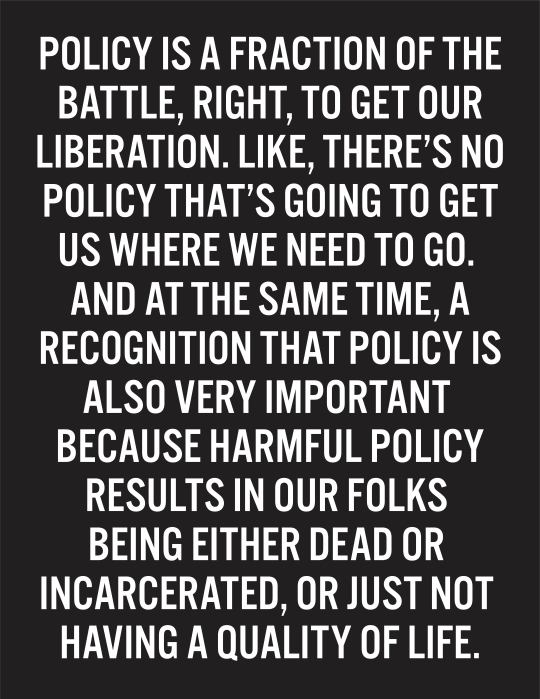
Nancy: When did he take that away? That was last summer?
Nekessa: No, it's been over 10 years. It's been a long time. Yeah. Maybe even 15? And I think we often don't think about how valuable a driver's license is. I'm one of the people who's been grandfathered into something operating under the old laws before they change. I don't drive, but I have a license. What a license affords me is to be able to open a bank account; go to the gym; if I had children, to pick children up from school; to travel; basically a lot of things that give me dignity. And there are people in our community who opposed that law that do not have access to those things and they will continue driving.
They will continue doing all the things they need to do because they need to get to work. They need to drop their kids off to do this and all that. And for black people, it just means that your rates of interaction with law enforcement is increased when you drive ‘cause you'll be profiled. And so we end up in detention. We end up being deported. So I think that's one thing that this state has to take really seriously. It's not just Black immigrants were impacted, obviously, but all undocumented immigrants. And other things include access to health care. Undocumented immigrants do not have access to public health care, even though they pay into the tax base, or rather, we pay into the tax base. I cannot sign up for MinnesotaCare, right-to-work. People have to show proof of citizenship, in some industries less than others. It means there's a lot of labor exploitation. . A lot of those things are things that can be remedied and taken care of on the local legislative and policy level.
The conversations around mass incarceration must include detention. I have too many horror stories of people I know in detention. Currently, right now, here in Minnesota, in Sheboygan County, Carver County, including a woman who went into detention without knowing she was pregnant, finds out she's pregnant, and because of the stress and the treatment that she received there, she ended up having a miscarriage right when she was close to term.
So I think there's a lot of things we don't have to look to Congress, to the federal government to solve that can really be done here locally. And it takes courage, it takes people moving beyond this question of, ‘but the law’. Like, I'm really tired of hearing people talk about the law. Because to the law, Indigenous people and Black people are not human beings. Indigenous people could not even vote for a very long time. Neither could Black people. Those laws that would prohibitChinese people from moving to the [United] States. There's all these things about the law that's not moral, so the law cannot be our ethical guide.
And so people in position of leadership doing everything against what they know and what they thought they were supposed to do. They're supposed to uphold the law. Challenging that is a must. It must come from them because so many of us that are impacted are pushing and doing so much work, but we don't have that kind of power. And there's nothing more frustrating than sitting in front of a person in office and they tell you, ‘I don't have the power to do this.’ Like, what would make things safe? We can't think of immigration on its own because immigrants exist [beyond moving across borders].
We drink water, we live in houses, we have jobs, have children, at the intersections of all these things that we need justice for. And when you think about housing justice and access to housing, and the ways that people can't afford to live in the city. Like, what are we doing to make sure that these people have a roof over their head? You know, it's not giving subsidies to developers for sure. What are we doing to vacant lots all over the city? We're talking about Minneapolis, but it's all over the state. Meanwhile there are people homeless, living in overpasses.
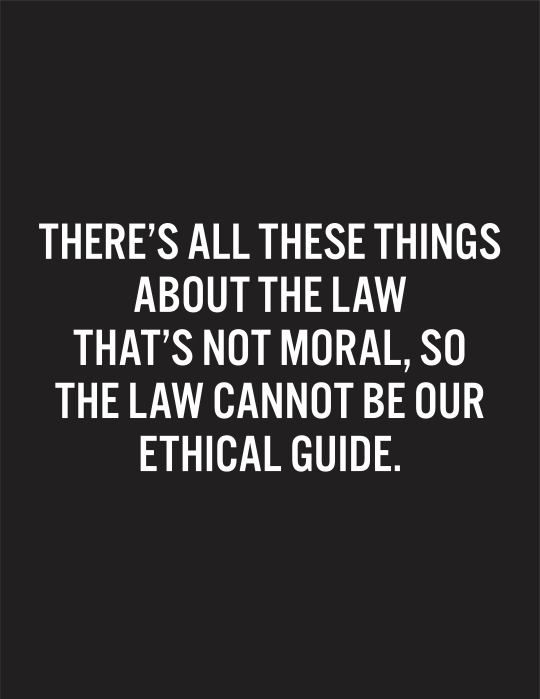
Nekessa: So I think all those, like specific things that people can do here. And then in terms of like Queer rights, I think the biggest challenge I know of Black Queer people and other Queer people in Minnesota have this problem, is anti-Blackness and racism. We have all these organizations that work on Queer justice and LGBT rights and homelessness and all this — what is their lens on anti-Blackness? How are they un-doing their own internal racism?
Let me give you an illustration of the best example of — you know, you are talking about how people have all these lawn signs saying ‘All Are Welcome’ and all this stuff. So in the 70s and the 80s, there was a movement to develop what are called sanctuary cities. Churches were taking all these Central Americans and declare themselves as a political sanctuary so that the government would not take these undocumented people away. So, that is the beginning of the sanctuary movement. Now it's become this movement where churches are housing people and, in different ways, as churches and synagogues, because ICE cops come in and take people.
And then there are people who are in sanctuary in secret hiding from the government as they work on their case. Now, I forget who said the most segregated time in America Sunday morning. Now think about this when people are not in sanctuary, when I'm just existing as a Black person and I need a church to go to. I have to figure out, ‘is this church anti-Black? Are they racist?’ And if they are, then I don't go to church. I mean, I know so many Black people, that's their story. They're always looking for a church, especially if they're living in like a non-Black neighborhood.
Now imagine that hostility you're already experiencing anti-Blackness. And then imagine now you're undocumented and you're looking for sanctuary, when I was in crisis, you couldn't be there for me. How am I to trust that you could offer me sanctuary?
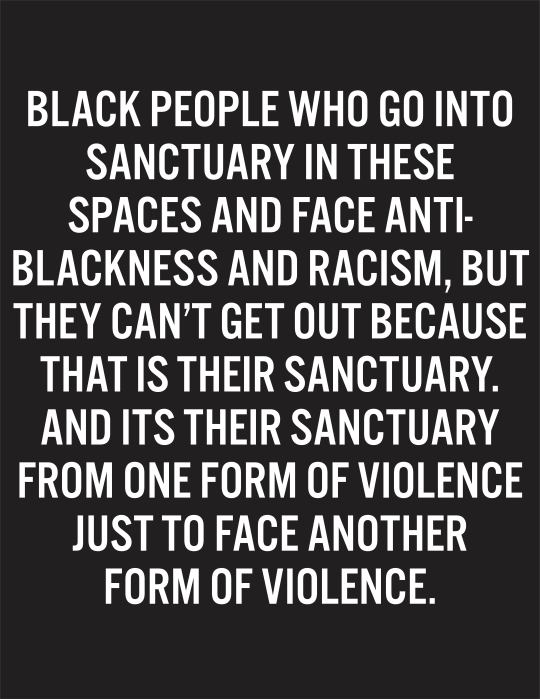
Nekessa: And the reality is Black people who go into sanctuary in these spaces and face anti-Blackness and racism, but they can't get out because that is their sanctuary. And it's their sanctuary from one form of violence just to face another form of violence. So, I think this is a challenge to Minnesotans, especially because we really pride themselves on being safe, being welcoming, and the racism that, as Black people or as indigenous and other people of color, face in this state.
It's harmful to us. Like, it's cruel our soul, to our bodies, but also to our wellbeing and its impact on how we have access to housing, to jobs, our kids, school, education, health care, etc. And so I think this is a bigger challenge for people. It's not enough to say that I'm a housing rights advocate. What does it mean that you’re a housing rights advocate?
Nancy: Anything you want to add?
Nekessa: No.
Nancy: I think that's a really great way to end it. Thank you.
Nekessa: Thank you.
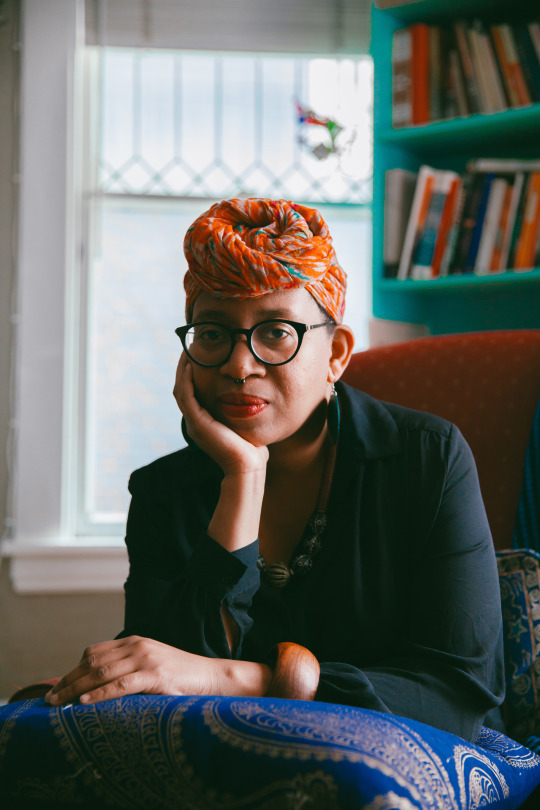
0 notes
Text
Penn Badgley Writes Why He Fought for Immigrant Mom Vilma Carrillo's Reunion With Her Daughter, Yeisvi
Shana Tabak is driving me through the rain. Shana is a lawyer from the Midwest and serves as the executive director of the Tahirih Justice Center’s Atlanta office. It’s December 14, 2018, and I’m in the passenger seat trying to take a selfie with her (typical actor), hoping to generate a little buzz about our trip.
I’ve teamed up with Shana and Tahirih in an effort to free Vilma Carrillo. Vilma sadly could not be pictured with us at the time because she was in immigration detention in Ocilla, Georgia, being silenced and hidden while she endured separation from her daughter, Yeisvi, for more than seven months. Her treatment reflects the explicit use of fear as a tactic in certain U.S. policies. Vilma was being made into an example.
When we arrived at the detention center to visit Vilma, I was not allowed in; we were told that we had misunderstood the hours for visitors who are not attorneys. Shana, who had already triple-checked, knew this was not true. This was yet another degree of obstruction of justice for Vilma, and it could have concluded our visit right here, so Shana whispered to me, “Work your magic."
I felt pathetic and ashamed that there might be magic for a marginally famous white man to work his way into a detention facility where others are powerless to escape, so I smiled desperately and, before I opened my mouth, I tried to hold Vilma in my mind. She and I had not yet met. She was, at this point, only an idea that I had real trouble connecting with because our experiences and lives have been so different.
Vilma is an indigenous Guatemalan woman and a victim of prolonged domestic violence; she says her abuser punched her face so hard that she lost her four front teeth. In her hometown, she saw the bodies of women in the street, shot in the head. Eventually, she and her 12-year-old daughter, Yeisvi, fled this horrific gender-based violence to seek protection as asylum seekers here in the United States.
Hoping for a chance to make their case for safety and relief, mother and daughter arrived at our border and were separated — thousands of miles apart — under this presidential administration’s “zero tolerance” policy this past spring. In June, a federal judge ordered that most separated families be reunited by July 26, 2018 — though not all of them were. After the deadline, Vilma was transferred to a detention center in Texas and was told that she would be reunited with Yeisvi there. But their reunion didn’t happen then.
There was a legal hang-up stopping the mother and daughter from being reunited: Yeisvi was born in the U.S. during a brief visit by her parents during a stint as undocumented farm workers, so authorities refused to reunite her with Vilma because the federal ruling did not expressly include U.S.-citizen children. Consequently, Yeisvi was placed in foster care in Arizona. Vilma was transferred back to Georgia to face her asylum hearing without a fair trial
Vilma says that when she appeared in court, her asylum application and evidence remained in a backpack in the possession of Immigration and Customs Enforcement (ICE), which she could not communicate because her court-appointed interpreter spoke the wrong indigenous dialect of the Mam language. She was subsequently denied asylum and ordered deported. The Tahirih Justice Center is currently handling her appeal.
Vilma's daughter, Yeisvi.
Courtesy of Tahirih Justice Center
When I met Vilma on December 14, she wept openly during our visit as she wondered what she had done wrong. She passed me colorful handmade bracelets through the plexiglass barrier and asked if Shana and I thought her daughter would like them. One read, "Feliz Navidad" — just in time for Christmas.

Source: https://www.teenvogue.com/story/penn-badgley-immigrant-mom-vilma-carrillo-daughter-yeisvi-reunion-op-ed
0 notes
Text
Penn Badgley Writes Why He Fought for Immigrant Mom Vilma Carrillo's Reunion With Her Daughter, Yeisvi
Shana Tabak is driving me through the rain. Shana is a lawyer from the Midwest and serves as the executive director of the Tahirih Justice Center’s Atlanta office. It’s December 14, 2018, and I’m in the passenger seat trying to take a selfie with her (typical actor), hoping to generate a little buzz about our trip.
I’ve teamed up with Shana and Tahirih in an effort to free Vilma Carrillo. Vilma sadly could not be pictured with us at the time because she was in immigration detention in Ocilla, Georgia, being silenced and hidden while she endured separation from her daughter, Yeisvi, for more than seven months. Her treatment reflects the explicit use of fear as a tactic in certain U.S. policies. Vilma was being made into an example.
When we arrived at the detention center to visit Vilma, I was not allowed in; we were told that we had misunderstood the hours for visitors who are not attorneys. Shana, who had already triple-checked, knew this was not true. This was yet another degree of obstruction of justice for Vilma, and it could have concluded our visit right here, so Shana whispered to me, “Work your magic."
I felt pathetic and ashamed that there might be magic for a marginally famous white man to work his way into a detention facility where others are powerless to escape, so I smiled desperately and, before I opened my mouth, I tried to hold Vilma in my mind. She and I had not yet met. She was, at this point, only an idea that I had real trouble connecting with because our experiences and lives have been so different.
Vilma is an indigenous Guatemalan woman and a victim of prolonged domestic violence; she says her abuser punched her face so hard that she lost her four front teeth. In her hometown, she saw the bodies of women in the street, shot in the head. Eventually, she and her 12-year-old daughter, Yeisvi, fled this horrific gender-based violence to seek protection as asylum seekers here in the United States.
Hoping for a chance to make their case for safety and relief, mother and daughter arrived at our border and were separated — thousands of miles apart — under this presidential administration’s “zero tolerance” policy this past spring. In June, a federal judge ordered that most separated families be reunited by July 26, 2018 — though not all of them were. After the deadline, Vilma was transferred to a detention center in Texas and was told that she would be reunited with Yeisvi there. But their reunion didn’t happen then.
There was a legal hang-up stopping the mother and daughter from being reunited: Yeisvi was born in the U.S. during a brief visit by her parents during a stint as undocumented farm workers, so authorities refused to reunite her with Vilma because the federal ruling did not expressly include U.S.-citizen children. Consequently, Yeisvi was placed in foster care in Arizona. Vilma was transferred back to Georgia to face her asylum hearing without a fair trial
Vilma says that when she appeared in court, her asylum application and evidence remained in a backpack in the possession of Immigration and Customs Enforcement (ICE), which she could not communicate because her court-appointed interpreter spoke the wrong indigenous dialect of the Mam language. She was subsequently denied asylum and ordered deported. The Tahirih Justice Center is currently handling her appeal.
Vilma's daughter, Yeisvi.
Courtesy of Tahirih Justice Center
When I met Vilma on December 14, she wept openly during our visit as she wondered what she had done wrong. She passed me colorful handmade bracelets through the plexiglass barrier and asked if Shana and I thought her daughter would like them. One read, "Feliz Navidad" — just in time for Christmas.
Source: https://www.teenvogue.com/story/penn-badgley-immigrant-mom-vilma-carrillo-daughter-yeisvi-reunion-op-ed
0 notes
Text
Families like this one were torn apart at the border. The U.S. still hasn’t made things right.
Leticia tells her story to anyone who will listen: judges, journalists, political officials. She recounts the moment she realized strangers had snatched her son while she slept in a migrant detention cell; and the agonizing month that followed, when no one would tell her where her child was or whether he was even alive.
Sharing this story is painful. But Leticia knows it would be more painful to still be living this experience, as hundreds of families still are. Because the U.S. government is, even today, separating families.
“For them I would tell my story over and over again,” she says.
Before the country moves on, before a new administration and the public try to put this national atrocity in the rearview mirror: Leticia wants us all to remember. She wants us to provide what is owed to hundreds of children whose deported mothers and fathers still haven’t been located, because the government didn’t bother to keep records; and to the thousands more families who have been found, and in some cases reunited, but still fear for their lives.
Three years ago, Leticia and her son became victims of one of the largest-scale, ethnically motivated human rights abuses perpetrated by the U.S. government since Japanese internment. Today, they want to be advocates.
“I won’t be calm or quiet until those parents can smile with their children,” Leticia says. As for the U.S. officials responsible for this state-sanctioned child abuse: "Ultimately, we just want to hold them accountable so they can’t do this in the future.”
In November 2017, Leticia and her son Yovany, then 15 years old, fled gang threats and other violence in Guatemala. (The family spoke, through an interpreter, on the condition that The Post not use their full names. They fear speaking publicly will lead to retaliation from U.S. immigration authorities and make it easier for gangs to find them.) When they left Guatemala, they had no idea what horrors awaited them in the United States. After all, by reputation, law and international treaty obligations, the United States is supposed to provide persecuted peoples the opportunity to seek asylum.
“When we crossed, we were actually a little happy. We were a little happy because we thought that the fear we felt had been left behind and that once we were in this country, they could no longer harm us. It was like logically, we were safe.”— Leticia
Instead, they were targeted by the Trump administration’s El Paso “pilot” experiment to systematically separate parents from their children, a policy later expanded to the entire southern border. The goal, officials have said, was to make the process of seeking asylum — which is a legal right — so notoriously cruel that it would dissuade eligible families from even trying.
“A big name of the game is deterrence,” then-White House Chief of Staff John F. Kelly told NPR.
A few hours after crossing the Rio Grande, Leticia and Yovany were detained by U.S. Customs and Border Protection agents and told they could sleep for a while. She was taken to a room for women, he to one for males. When she woke, other detainees said her son had been taken away. They didn’t know where. Panicked, Leticia began pounding on the locked door, demanding to see her boy.
A guard appeared, asking about the noise. She pleaded for her son. “I don’t know where your son is, I don’t know who your son is,” she recalls him responding. “I’m just changing shifts.”
For a month Leticia was in the dark. No one would tell her if Yovany had been detained elsewhere, deported or worse. Guards said it was her responsibility to locate him. They gave her a list of numbers for other detention centers, and she began calling around to see if one had her son.
Eventually, she learned that Yovany was in a shelter for unaccompanied children, and they were connected by phone. She urged him to eat and not to worry. She told Yovany she was fine — even though daily crying fits had partially paralyzed her face. As time passed, her hopes faded. During a hearing, an immigration judge said that without legal representation she had no chance of obtaining asylum, and she didn’t know how to find a lawyer while still in detention. After seven months, she agreed to relinquish her asylum claim and be deported back to Guatemala; she hoped this would better position Yovany to be released from the shelter at least.
Leticia and Yovany agonized over whether he should go with her, given the death threats he faced back home. Ultimately, they decided he should stay and pursue his own asylum claim.
“He was a child. He had an entire life ahead of him, and he deserves to live,” she recalls. “You have to choose: Your life or the life of your child."
Yovany was placed with a foster family, which arranged weekly phone calls between mother and son. They gave up on seeing each other again.
Several months after returning to Guatemala, Leticia began getting calls from strangers: lawyers, nonprofits or other volunteers trying to locate deported parents. She distrusted them and refused to talk. One day, however, a social worker showed up on her doorstep and convinced her that help was possible. Leticia was then connected with the Asylum Seeker Advocacy Project, which filed a motion to reopen her case.
The organization also asked Yovany to write a letter to the government:
In early 2020, a judge found that Leticia had been coerced into giving up her asylum claim and ordered that she be allowed back into the United States. After more than two years, mother and child were reunited.
“It was almost like I was born again,” she says. “I saw him enter. I thought, it was my son, it’s my son! And at the same time I hugged him, but I knew that I had a lot of pain and fear that they would take him away. I was hugging him so hard, but I thought they would separate us again.”
[Watch their reunion in the video at the top of the page.]
Of the several hundred parents deported without their kids, Leticia is among only about 20 who have been allowed back into the United States, according to Lee Gelernt, an American Civil Liberties Union lawyer and the lead attorney in litigation over family separations. Most are believed to be in Central America. Of those who have been located, roughly one-third subsequently chose to have their children deported, too; the others opted to leave their children in the States. Like Leticia, they feared repatriation would prove fatal.
Today, Leticia and Yovany live in New York City. While they are relieved to be together — “being without her is like being a flower without water,” Yovany says — anxiety over their separation persists.
“The pain, the lack of trust and the trauma doesn’t go away. Even when he goes to school and maybe he takes a little bit longer to get home, I get extremely nervous.”— Leticia
She aches, too, for the parents still unable to see their children, including some being newly separated even today.
There are multiple barriers to reunification. The Trump administration didn’t track all the families, and what records it did keep are poor; as a result, the deported parents of 666 children — about 20 percent of whom were younger than 5 when separated — haven’t even been located. The government isn’t actively searching for these “missing” parents. Instead, Justice in Motion, a nonprofit that’s part of an ACLU-organized steering committee, has dispatchedcontacts across remote and sometimes dangerous places to find them. The committee is paying for these search efforts itself.
Traumatized parents may not trust those making contact, as Leticia can attest. She argues that parents already reunited should participate in these efforts to connect families.
“They say, ‘What are they calling me for? Are you calling me to deport my child? Or are they calling me to put me back in detention?’” she explains. “We can be like a reflection for those parents and say, ‘See, I was separated, but now I am reunited, and we want to help.’ ”
Even when deported parents are located, there is usually little to offer them.
Advocates are mostly “trying to confirm that each child knows where their parent is, and each parent knows where their child is,” says Christie Turner-Herbas, director of special programs at Kids in Need of Defense. Then, deported parents are offered the unbearable choice between having their children deported to unsafe conditions, or remaining apart. Having a “more substantive remedy,” she argues, would help get the word out.
What kind of remedy? Mental health services are a good start. (The White House tried to block a deal paying for therapy for separated families, NBC recently reported, but a judge ordered it anyway.) So is some sort of broader financial restitution, perhaps through a victims’ fund. There are already multiplelawsuits seeking recourse on behalf of families; at least 500 individuals, including Leticia, have also filed for monetary damages. Leticia’s lawyers at the Asylum Seeker Advocacy Project say the government has not responded to her administrative complaint, filed in June 2019.
Leticia argues such recourse is necessary to help injured families and to hold the government accountable:
Perhaps more important than money is lawful status in the United States, where families can be safe.
Anita Sinha, director of American University’s International Human Rights Law Clinic, recently visited Honduras to help separated families document claims for monetary damages. When families realized the purpose of the visit — and that they had no hope of receiving asylum — some almost walked out. “No amount of money could help,” she says.
Even those already in the States — including families whose deportations a court temporarily blocked in 2018 — are not secure.
“I think a lot of people don’t realize that the Trump administration is still trying to deport these families, either the child alone or once reunited,” says Gelernt. “So the trauma from the separations exists. But on top of that, there’s the trauma of fighting for your life not to be sent back to danger.”
Victims like Leticia are still waiting for their asylum cases to be adjudicated. The Trump administration has severely restricted asylum eligibility, making it less likely such cases will succeed. Advocates argue that the incoming Biden administration should not only roll back Trump’s asylum policies but also secure separated families a faster path to residency.
President-elect Joe Biden has pledged to create a task force for separated families. His transition team did not respond to questions about whether deported families should be allowed back in the United States and whether Biden supports residency or other forms of redress for these victims.
If Leticia could speak to Biden, she would ask him to pursue more humane immigration policies and to “make amends for [past] mistakes.”
As for the rest of the country, her request is simple: Keep listening, but stop making it necessary for her to speak.
Article Source
0 notes